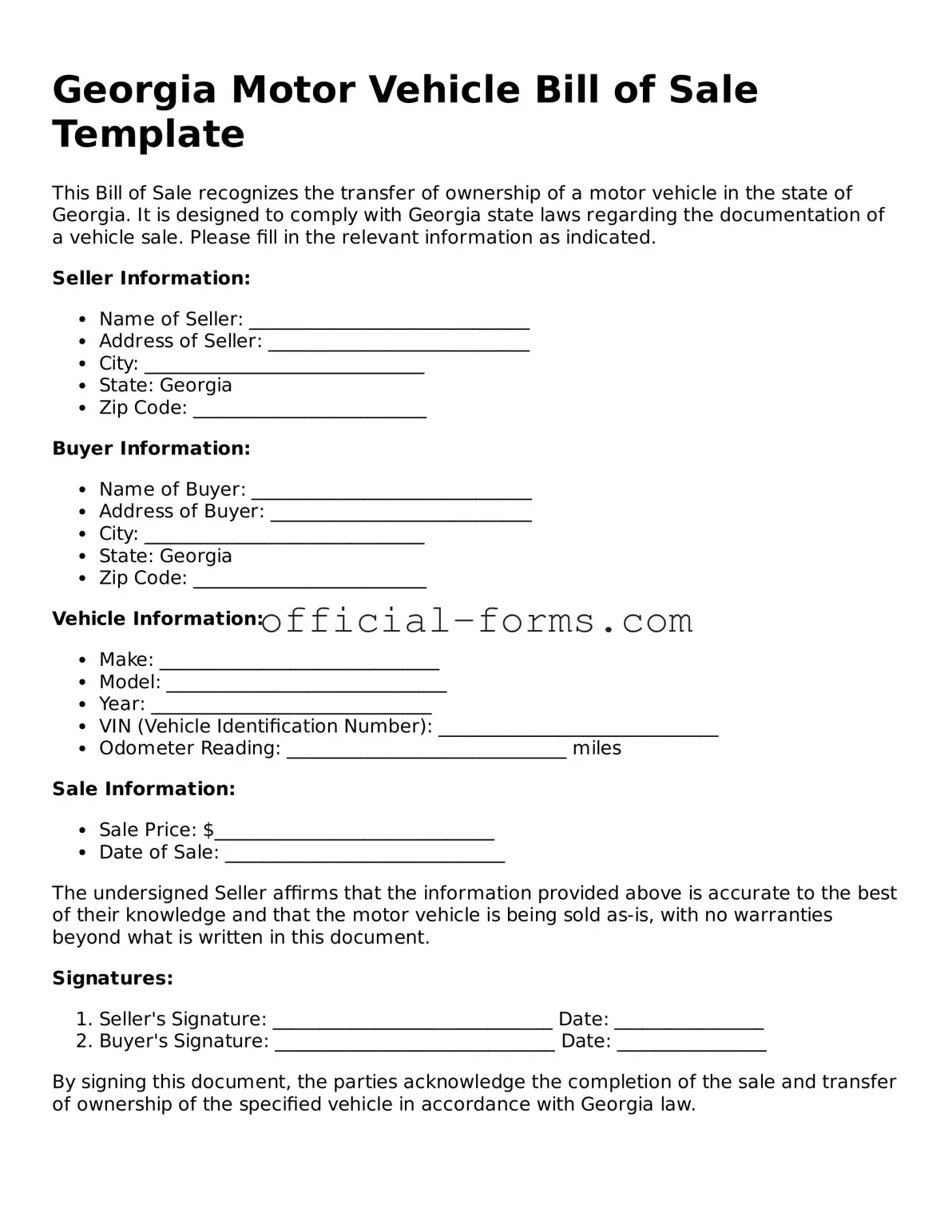Filling out the Georgia Motor Vehicle Bill of Sale form can seem straightforward, but many people make common mistakes that can lead to complications down the line. One frequent error is failing to include all required information. Essential details like the vehicle's make, model, year, and VIN (Vehicle Identification Number) must be accurately filled in. Omitting any of this information can render the document invalid.
Another mistake occurs when individuals do not sign the form. Both the buyer and seller must provide their signatures to validate the transaction. Without these signatures, the Bill of Sale may not hold up in legal situations, potentially causing issues with registration or ownership transfer.
People often forget to include the sale price. This detail is crucial not only for record-keeping but also for tax purposes. Leaving this section blank can lead to confusion and may result in unexpected tax liabilities later on.
Some individuals neglect to date the form. A date is vital as it marks when the transaction took place. Without it, there could be disputes about when the sale occurred, which can complicate ownership claims or tax assessments.
Using incorrect or outdated information is another common pitfall. Ensure that all details are current and accurate. For instance, if the vehicle has undergone modifications, these should be noted. Failing to do so can lead to misunderstandings between the buyer and seller.
People sometimes forget to provide a copy of the Bill of Sale to the buyer. This document serves as proof of purchase and is necessary for the buyer when registering the vehicle. Not providing a copy can create unnecessary friction between both parties.
Misunderstanding the requirements for notarization is also a frequent issue. While notarization is not always required in Georgia, certain situations may call for it. Being aware of when notarization is necessary can save time and trouble later.
Another mistake involves not checking for typos or errors before submitting the form. Simple mistakes can lead to significant issues, such as registration delays or disputes over ownership. Taking the time to review the document can prevent these headaches.
Lastly, some people overlook the importance of keeping a copy of the completed Bill of Sale for their records. This document is not just a piece of paper; it serves as proof of the transaction and can be essential for future reference. Failing to keep a copy can lead to complications if questions about the sale arise later.

